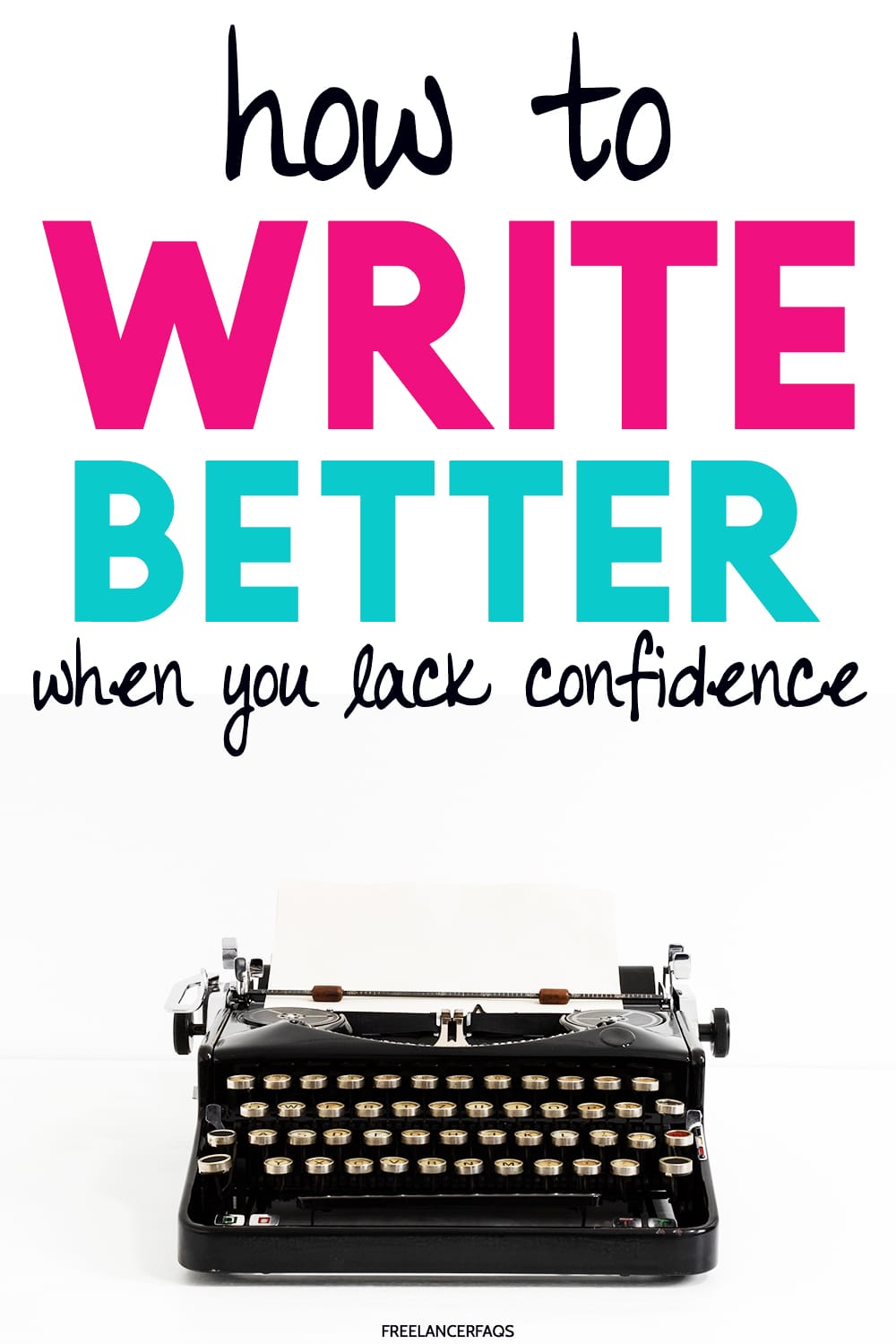Did you know that it took the infamous writer, J.K. Rowlings five years just to plan the whole story of the magical young boy Harry Potter?
Five years, even before she started to write the story!

As an online writer, I’m sure that you are always looking for new (and easy) ways on how to write better.
Becoming a great writer doesn’t happen overnight for most people. It takes years and years of practice, trial and error, crushed dreams, all-nighters, and continued learning.
You read all of the guru’s articles, bestselling copywriting books, and listen to all of the hottest podcasts.
Becoming a great writer doesn’t happen overnight for most people. It takes years and years of practice, trial and error, crushed dreams, all-nighters, and continued learning.
You might not even realize it, but everything you write is copy.
You might have thought of copywriting as a special kind of writing, but it’s literally anything you write online. Copywriting is simply writing for the purpose of achieving a goal.
Learning how to write better with copywriting can help to make more sales, get your reader to sign up for your email list, or share your content on social media.
As an online writer, there are literally countless writing opportunities available. From writing blog posts on every niche imaginable, ad copy for Facebook (and all the other social media channels), video sales letter scripts, webinar slides, and email campaigns, just to name a few.
The great thing about copywriting is that there are specific formulas that any online writer can implement.
Whether you are looking to drive sales to yours or your client’s business, get targeted email leads, or build an audience of raving fans, there is a copywriting formula for that.
Looking to write a long-form sales letter? There’s a copywriting formula for that.
Looking to write a blog post that people will read all the way to the end. There’s a copywriting formula for that.
Looking to write short and effective ad copy that gets your audience to click. There’s a copywriting formula for that.
While I could go into some very basic tips and tricks on how to improve your writing; such as, practice, write consistently, get feedback, read more books and articles on how write better, I honestly don’t think that would be as helpful to you as providing you with actionable advice.
So I wanted to dive into some higher-level writing tactics that you can immediately put into action with your writing to improve your writing skills.
So let’s dive into some of these juicy copywriting formulas so you can achieve goals on how to write better.
How to Write Better
With learn how to write better, the key thing to remember is to practice every day. As a freelance writer, if you don’t have client, your job is to find writing work and to improve your writing so you can write better.
This is why I started a blog and social media channels and even an Medium account.
I want to practice writing every day so I can be a better writer, learn my writing niche and improve my writing process.
Look at these copywriting principles and use them in your writing so that when prospects view your writing, they can immediately see the value you have.
Bucket Brigade
According to KreativCopywriting, a bucket brigade is “keeping the flow going in copy by adopting a conversational tone.” A really great example of a blogger who does this is Jon Morrow from SmartBlogger. Jon keeps his readers hooked by using phrases like…
“It’s infuriating, but listen…”
This keeps the reader wanting more, and more, and more, until they have finished your entire article.
But there is another key thing that I want to add here…
(See what I just did there?)
While the bucket brigade is a great technique for keeping your readers hooked, you can’t just drag them along. You need to provide them with value.
Realistically, everything you write should provide your readers with some kind of value and solution to their problem. Or at least lead them in the right direction of a solution.
There are two additional benefits of using the bucket brigade technique…
- You lower the bounce rate on your page because people are staying longer to read.
- Google loves this and will rank your pages higher.
You’re not only killing it at copy, you are also appeasing the SEO gods – and if you want to get into B2B writing, this is exactly what clients seek.
The APP Method
 If you are on board with the bucket brigade copywriting method, then you are going to love the APP method to help you learn how to write better.
If you are on board with the bucket brigade copywriting method, then you are going to love the APP method to help you learn how to write better.
APP stands for Agree, Promise, Preview.
You see this ALL THE TIME in copy all over the web.
When writing the introduction to your article or blog post with the APP method, you want to start off with an agreeable statement. Something that gets your readers saying, “Yes, that’s me!”
This indicates to them, right away, that you understand their problem. In fact, this can be as simple as opening your writing with:
“I think you can agree with me when I say: [insert reader’s problem here].”
Once you have them hooked and they want to keep reading to figure out how to solve their problem, it’s time to make your Promise.
This directly follows the Agree step.
With the promise, you are promising to solve their burning problem and give them a glimpse into what life will be like once [specific problem] has been solved.
Don’t forget to use power words here (I’ll get to that in a minute).
The promise gets your readers to stick around and finish reading your article all the way to the end.
Finally, you give them the Preview.
The preview tells your reader exactly what they are going to get by reading your entire post. The agree, promise, and preview all take place right within the intro of the post.
This also helps to create a solid outline for your writing and helps your reader know what to expect.
The key to taking your post from “ok,” to “I have to share this with everyone I know,” is what comes after the APP.
You actually need to deliver on what you promised. Provide your audience with value, value, and more value.
Power Words
Power words are…well, powerful and can instantly help you learn how to write better.
Simply put, power words are words or phrases that evoke emotion.
Think of something that you have read recently, a news story, a novel, et cetera.
I bet you they are packed full of power words.
Words like…
- Meltdown
- Astounding
- Provocative
- Barbaric
- Legendary
- Foolproof
- Zany
Power words energize the reader, evoke fear, desire, anger, deal with greed, establish security, and spark temptation.
Using power words is an extremely simple skill to master when learning how to write better, even for a new writer.
If you are not sure where to start, Mary Fernandez from Optinmonster, has an in-depth post on how to use power words in your writing.
Understand (and Use) SEO
I know what you’re thinking, “SEO, that is NOT my department! Leave that to the SEO experts!”
Every good online writer should understand the basics of search engine optimization.
Once you understand the basics of SEO, it is actually pretty simple to write with SEO in mind.
Writing any kind of copy online and SEO go hand-in-hand.
But before we get into the HOW, I want to give you a quick overview on the WHY.
When you understand how to write with SEO in mind, you will be speaking directly to your audience, answering their burning questions.
Writing that is focused on keywords (without keyword stuffing) will get your writing noticed by both search engines and your target audience.
Having great SEO tactics will also get readers to stay on your page longer (see the bucket brigade tip).
The longer your reader stays on a page, the more of a fan they will become, the greater chance of them signing up for your email list, and or coming back to your site again and again.
Now let’s get into some basic hows of SEO for online writing.
- Write headlines that people have to click on (click worthy without being clickbait).
- Search forums for keywords that your audience is actually using.
- Use AnswerthePublic to answer your audience’s burning questions.
- Search the most popular courses on Udemy and reviews of books on Amazon for hot topics to write about.
- Use latent semantic indexing keywords in your writing, these are closely related keywords.
- Use a call to action for social shares and increasing your email subscribers.
- Using headings, subheadings, lists, quotes, et cetera for breaking up text and making it easier to read.
- Use numbers in your writing (X# of ways to improve___).
To learn how to write SEO copy effectively for your freelance writing clients, make sure to check out Freelance Blogging in a Weekend.
Don’t Go At It Alone
Just because you write online and don’t sit in an office with coworkers all day doesn’t mean you should go at this writing thing all alone.
Join a writing mastermind, a local meetup, or a free Facebook group.
Connect with other writers, ask for feedback on your work or even take a class from other renowned writers. Don’t be afraid to invest into your career to learn how to write better.
While I only mentioned a few tips here, they can be extremely powerful.
While trying to implement all of these at once can seem overwhelming, they don’t have to be. I want to provide one more actionable tip for you.
Create a checklist of the different things you want to do to improve your writing for upcoming gigs. This way you have a visual list of the things to implement in your writing.
For example:
- Use the APP method
- Add X# of power words
- Use AnswerthePublic to incorporate more questions into my writing.
Once you have mastered a few things that will help to improve your writing, add some more.
Again, going from an ok writer to a great writer won’t happen overnight. It takes time to improve your skills and build that raving audience. You need to be able to push yourself but also don’t beat yourself up if you aren’t where you want to be with your writing.
Over to you – what are your best tips to learning how to write better?




3 Comments